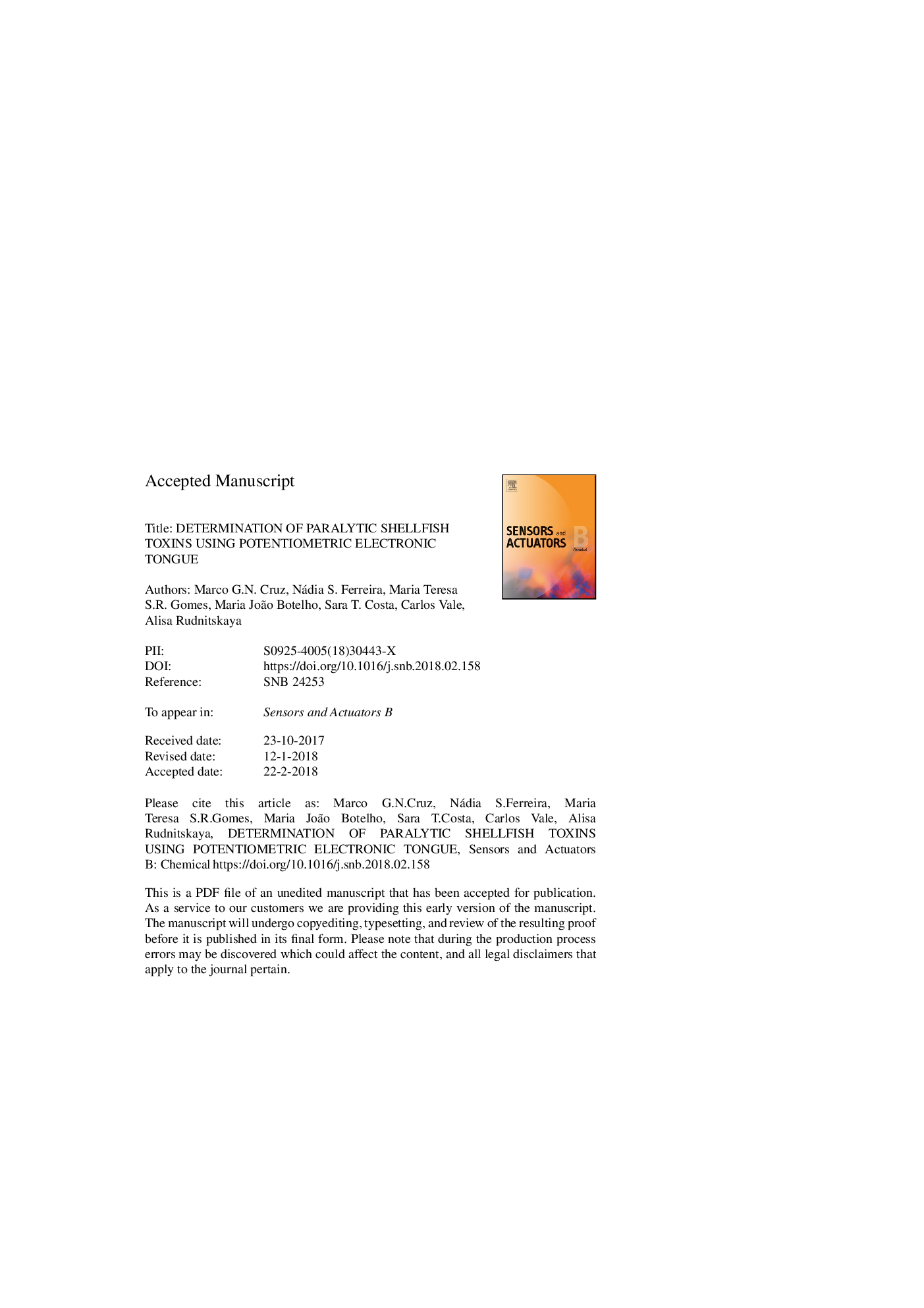| Article ID | Journal | Published Year | Pages | File Type |
|---|---|---|---|---|
| 7140534 | Sensors and Actuators B: Chemical | 2018 | 26 Pages |
Abstract
Paralytic shellfish toxins (PSTs) are monitored in commercial bivalves in several countries in the world due to their toxicity to human consumers. The present work examines the application of an electronic tongue based on potentiometric chemical sensors to the quantification of PSTs in mussel extracts. The electronic tongue comprised six miniaturized sensors with solid inner contact and plasticized polyvinylchloride membranes. Calibration models were calculated by PLS regression using measurements in sixteen model mixed solutions containing four PSTs commonly found in bivalves from the Portuguese coast. Transfer of the calibration models to sample matrix was done by joint-PLS regression using measurements in five mussel extracts spiked with PST standards. Quantification of PSTs in extracts of naturally contaminated mussels, using the electronic tongue and updated calibration model, was in agreement with values of the chromatographic reference method. Those sensors alone or combined in an electronic tongue are useful tools for rapid screening of PST in bivalves.
Keywords
Related Topics
Physical Sciences and Engineering
Chemistry
Analytical Chemistry
Authors
Marco G.N. Cruz, Nádia S. Ferreira, Maria Teresa S.R. Gomes, Maria João Botelho, Sara T. Costa, Carlos Vale, Alisa Rudnitskaya,
